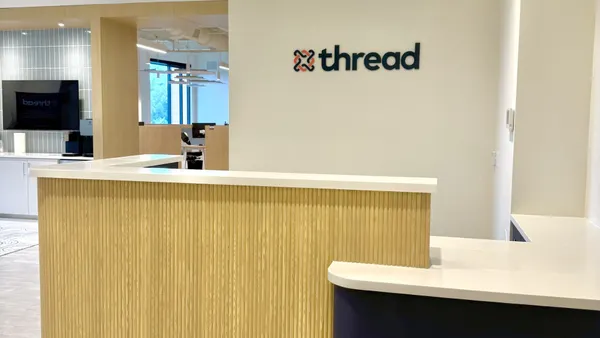Shareholders of Wise voted overwhelmingly Monday to move the U.K.-based fintech’s primary listing to New York from London.
The vote was not without controversy, however. The vote on relisting Wise was bundled alongside a measure that lets Class B shareholders in the company retain “golden share” supervoting powers for 10 more years.
Under Wise policy, Class B shares, owned by the company’s longtime investors, are worth nine votes apiece, while Class A shares are worth one. But the Class B voting power was limited to five years after the company went public. That debut came in 2021, so golden shares were due to expire next year.
Coupling the two measures drew backlash from one of the fintech’s co-founders, Taavet Hinrikus, who urged shareholders last week to reject the relisting, on the thought the golden share extension would give too much power to his former business partner, Wise CEO Kristo Käärmann.
“Every CEO would like to have special rights forever. Every shareholder says they should not exist,” Hinrikus said, according to The Wall Street Journal. “The question is how do you impose time limits, so everyone feels good, and how do you do it transparently?”
As it stands, Käärmann owns an 18% stake in Wise but controls just less than 50% of the votes in the company because of his Class B shares. Hinrikus, by comparison, owns 5.1% of Wise’s shares.
Wise asserted in June that moving its primary listing to the U.S. would draw retail and institutional investors, increase its liquidity and perhaps boost its valuation, currently around $17 billion.
But Käärmann remains cautious that outside forces may pressure Wise to increase fees as a method to boost earnings, Bloomberg reported, citing sources who have worked with the CEO.
Perhaps another concern is that activist investors might push Wise to pay dividends. The company’s technology may also draw interest from an acquiring bank.
Hinrikus, meanwhile, accused Wise of trying to bury the detail that the relisting vote would also include the supervoting extension. (The first mention of the supervoting measure came on page 10 of the proposal Wise sent to its investors.)
The supervoting measure was hidden so well, Hinrikus argued, that proxy advisers Glass Lewis and Institutional Shareholder Services didn’t mention it on first pass. Each later issued an addendum.
“Glass Lewis believes multi-class share structures with unequal voting rights are typically not in the best interests of common shareholders,” the proxy adviser wrote in a report July 22, adding it was “concerned.” Glass Lewis ultimately advised Wise shareholders to back the move.
Wise needed a majority of Class A and B shareholders to approve the measure – with the caveat that a “supermajority” of investors holding 75% of the value of the company’s stock must vote in favor of the relisting proposal for it to pass.
It received support from holders of more than 90% of its Class A stock and nearly 85% of its Class B shares.
“We’re pleased that our owners have overwhelmingly approved the proposal, giving us a strong mandate to proceed,” Wise Chair David Wells said in a statement Monday. “We appreciate the extensive engagement with our owners. With this high level of support, our focus is firmly on moving forward.”
Wise plans to keep a secondary listing in the U.K. A court in the country must also give its blessing on the move.
Still, the dual measure draws skepticism from some observers of the space.
“Whenever anyone wants to extend dual-class shares for 10 years, there are legitimate concerns about their motivations,” Jay Ritter, a finance professor at the University of Florida, told The Wall Street Journal. “Is this entrenchment, or is this innocuous?”













